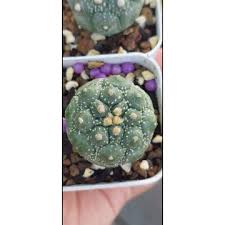
Agriculture has been the backbone of China’s economy for centuries, shaping its social structure, economy, and culture. Throughout history, noble families have played a crucial role in the growth and transformation of Chinese agriculture. From early dynastic periods through to the more modern eras, these families not only shaped the agricultural landscape but also contributed to innovations in farming techniques, land management, and crop cultivation. Their influence helped secure China’s agricultural dominance, allowing it to thrive and feed its vast population.
This article delves into the integral role of noble families in the development of agriculture in ancient China, focusing on their involvement in land management, technological advancements, crop cultivation, and their influence on agricultural policies.
1. The Power of Land Ownership
In ancient China, land was synonymous with wealth and power. Noble families, who often held vast amounts of land, were at the center of the agricultural economy. Their ability to manage and cultivate land directly influenced the success of agricultural production, which, in turn, fueled the country’s economy.
Feudal Land Ownership and Agricultural Production
Under feudal systems, noble families owned significant swathes of land that were cultivated by tenant farmers or peasants. These farmers would work the land, but a portion of the produce would go to the landowner as rent. As such, the prosperity of noble families was tightly linked to the productivity of the land. In return for their land ownership, these families played an important role in ensuring the stability of agricultural production.
Noble families often acted as feudal lords, responsible not only for the collection of rents but also for overseeing the agricultural work on their land. They would employ peasants to plant and harvest crops, making them central figures in agricultural production. In this system, noble families provided essential tools, seed resources, and infrastructure like irrigation systems, while farmers contributed their labor.
Control of Water Resources and Irrigation Systems
The role of noble families in agriculture extended beyond simply owning the land. The control and management of water resources, such as rivers and canals, were essential for crop irrigation. The development and maintenance of irrigation systems were critical to ensure consistent water supply to farmlands, particularly in arid regions.
Noble families often took responsibility for the construction and upkeep of canals and irrigation networks, which were vital for rice and wheat farming. By providing the necessary infrastructure, these families ensured a reliable water supply, which increased agricultural yields and helped stabilize food production across the country.
2. Innovations in Agricultural Practices
Noble families were also key figures in the promotion and implementation of agricultural innovations in ancient China. These innovations, particularly in farming tools, crop rotation, and techniques of soil management, significantly boosted agricultural productivity.
Advancement in Farming Tools and Techniques
Ancient China saw the development of advanced farming tools, including iron plows and hoes, which greatly improved productivity. Noble families, with their wealth and resources, were able to afford and spread the use of these tools, which helped to maximize land use and increase crop yields.
The use of iron plows, for example, allowed for deeper plowing of the soil, enabling the cultivation of tougher soils and larger tracts of land. As these tools became more common, they allowed farmers to cultivate a wider variety of crops and improve overall production. Noble families, often being at the forefront of technological adoption, played a crucial role in disseminating these tools to local farmers, thus advancing agricultural practices.
Crop Rotation and Fertilization
Noble families were also influential in the practice of crop rotation, which allowed the soil to remain fertile and productive over time. By alternating between different types of crops, they ensured that the soil was not depleted of essential nutrients. This technique became especially important in the growth of staple crops such as rice, wheat, and millet.
In addition to crop rotation, the use of organic fertilizers, such as animal manure and compost, helped enhance soil fertility. Noble families, recognizing the importance of maintaining healthy soil, were early adopters of these practices, further promoting agricultural sustainability. Their influence in spreading these methods helped increase agricultural output, contributing to the stability of the economy.
3. The Role of Agriculture in Social and Political Power
Noble families had substantial political power, which they often used to influence agricultural policies. They were key figures in the governance of ancient China and played a significant role in the formulation of agricultural policies that affected the entire empire. These policies, in turn, helped ensure the success of Chinese agriculture.
Government-Backed Agricultural Reforms
Throughout various dynasties, noble families influenced the introduction of government-backed agricultural reforms. For instance, during the Tang Dynasty, the government introduced land reforms that aimed to distribute land more equitably and increase agricultural output. While these reforms were intended to improve the livelihoods of peasants and reduce aristocratic power, noble families still held significant sway in the administration of these changes, particularly in rural areas.
Noble families often acted as intermediaries between the peasant class and the government, ensuring that agricultural reforms were implemented effectively. In some cases, they were directly involved in the distribution of land or the allocation of resources for irrigation projects. These political and administrative roles allowed them to influence agricultural practices on a larger scale, ensuring that their own landholdings thrived while also contributing to the overall prosperity of the agricultural sector.
Land Taxation and Economic Control
Another area where noble families influenced agricultural development was through land taxation. By owning large estates, they were often involved in the collection of taxes from tenant farmers. In some cases, noble families had a say in how land taxes were assessed and collected. They could use their influence to ensure that the tax system benefited them and helped maintain the flow of resources to their estates.
Land taxes, which were a critical source of revenue for the imperial government, were often adjusted based on agricultural output. As the economic stability of China relied heavily on the agricultural sector, noble families were instrumental in shaping how the agricultural economy was taxed and controlled.
4. Commercial Agriculture and the Role of Noble Families in Trade
As trade networks expanded during the Tang and Song dynasties, noble families played an increasingly significant role in the commercialization of agriculture. Their wealth allowed them to invest in agricultural production on a larger scale, resulting in surpluses that could be sold in local, regional, and international markets.
Silk, Tea, and Other Agricultural Commodities
One of the most significant contributions of noble families to the agricultural economy was their involvement in the cultivation and export of luxury goods such as silk and tea. These products, which required specialized knowledge and careful cultivation, were often managed by noble families. They invested in the land and resources necessary for silk farming and tea production, which became important export commodities.
Silk, for instance, was cultivated in vast quantities on estates owned by noble families, who employed thousands of workers to raise silkworms and weave the fibers into fine textiles. The trade in silk helped China establish a reputation for luxury goods, driving economic growth.
Tea production was another industry closely tied to noble families. With their knowledge of agriculture, they pioneered methods for cultivating high-quality tea leaves and establishing tea estates. These estates became vital sources of wealth for noble families and contributed to the growth of trade routes like the Silk Road.
Agricultural Surpluses and Commercialization
Noble families also contributed to the commercialization of agriculture by encouraging the production of surplus crops. These surpluses allowed for the growth of markets, both within China and internationally. By focusing on producing goods for trade, noble families helped China become a leading player in international agricultural commerce.
Their role in ensuring high-quality, surplus agricultural production allowed China to export large quantities of rice, tea, silk, and other goods, thus contributing to the development of a more diverse economy and a prosperous trade network.
5. Conclusion: Legacy of Noble Families in Chinese Agriculture
Noble families played a central role in the development of agriculture in ancient China. Through their control of land, investment in agricultural technologies, and involvement in agricultural reforms and trade, they significantly contributed to the prosperity and sustainability of the agricultural economy. Their efforts helped establish China as one of the world’s leading agricultural powers, capable of feeding its population and driving economic growth.
The impact of these noble families extended far beyond just the realm of agriculture. They shaped Chinese society, politics, and economy through their influence over agricultural practices and policies. In doing so, they helped lay the foundations for China’s dominance in agriculture for centuries to come. The legacy of their contributions to farming and land management continues to be felt in China’s agricultural practices today.

